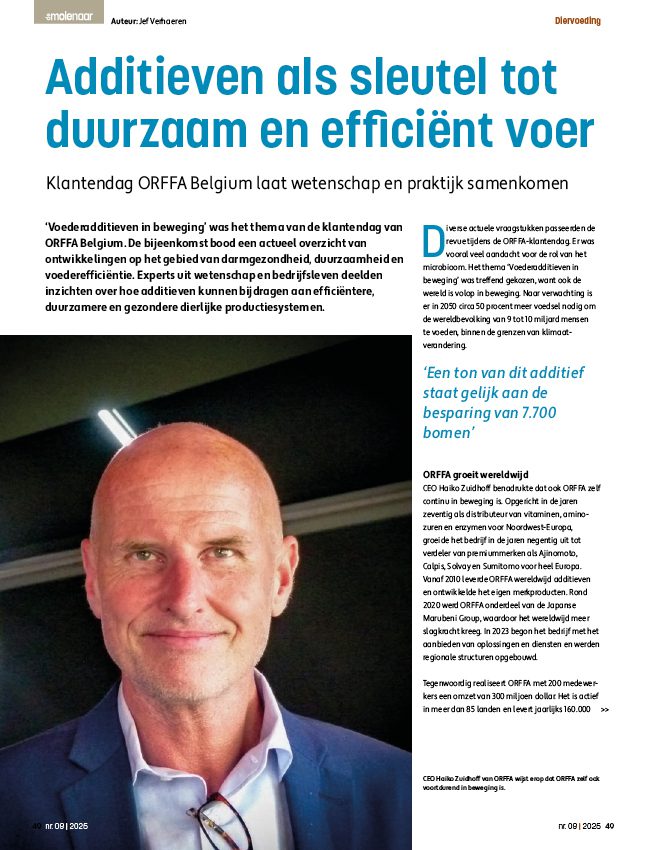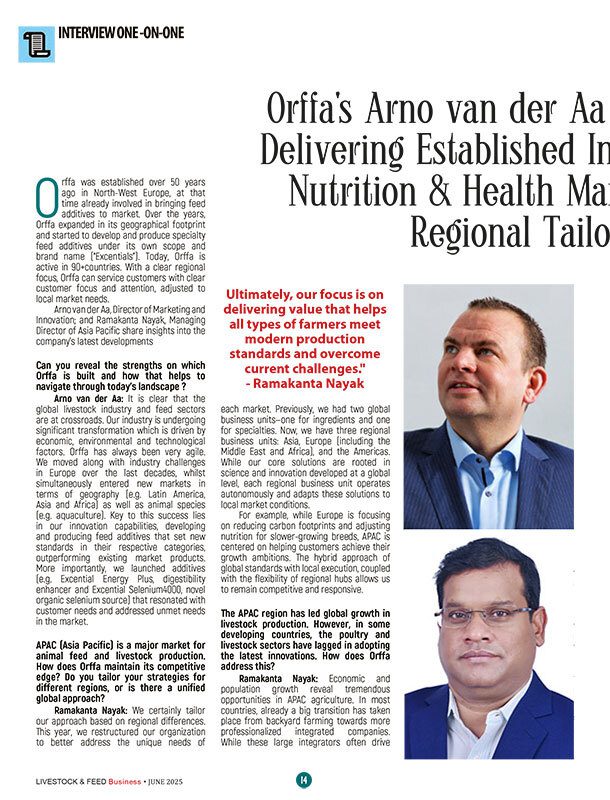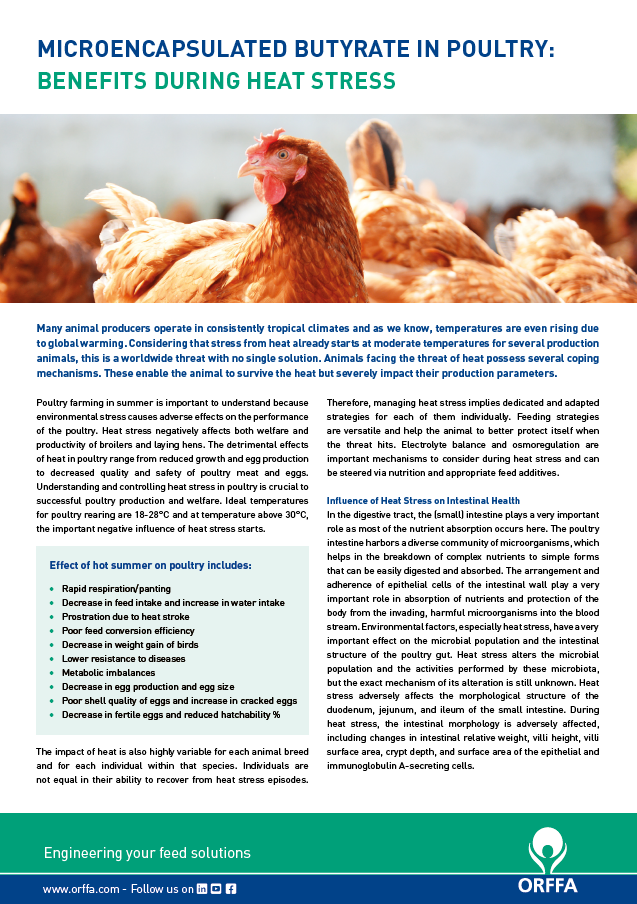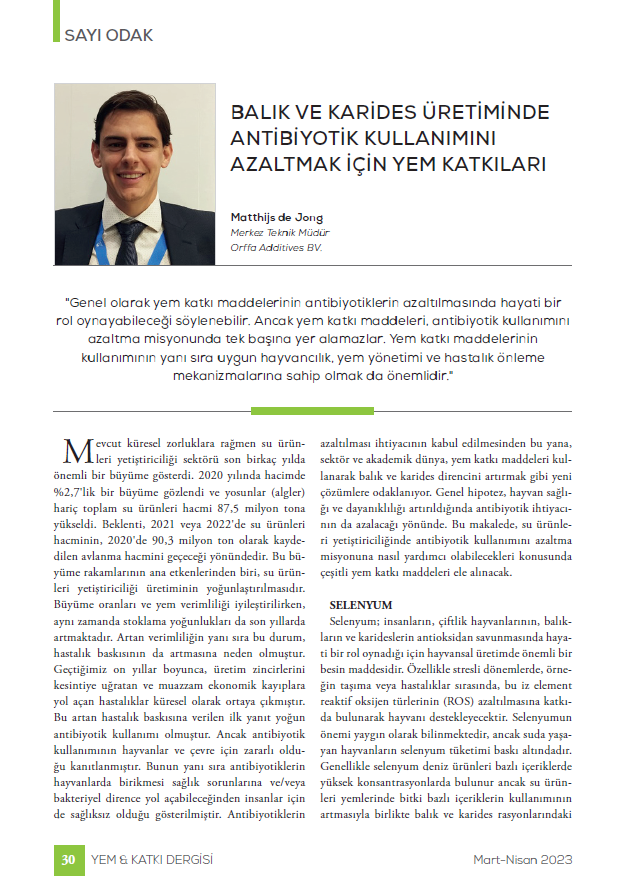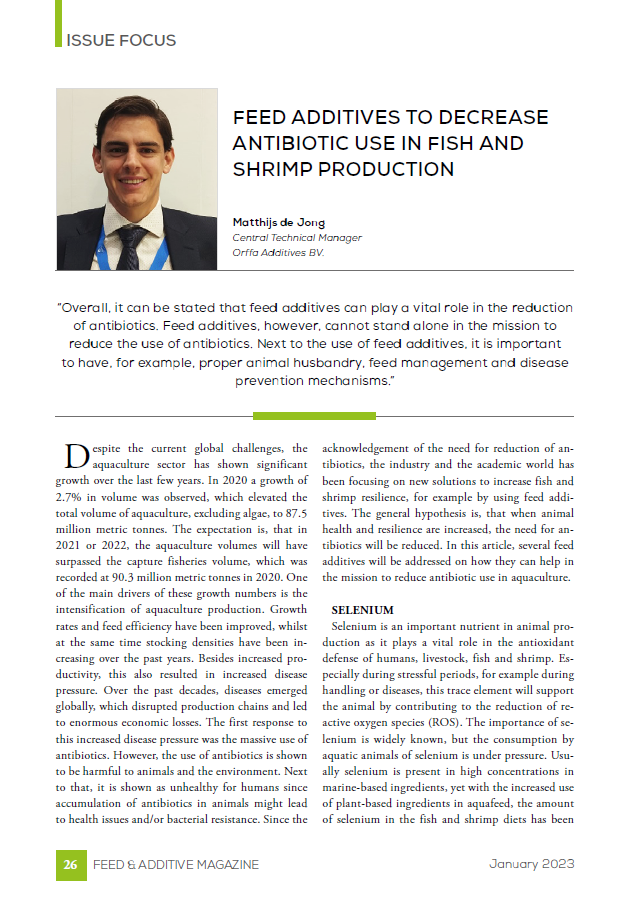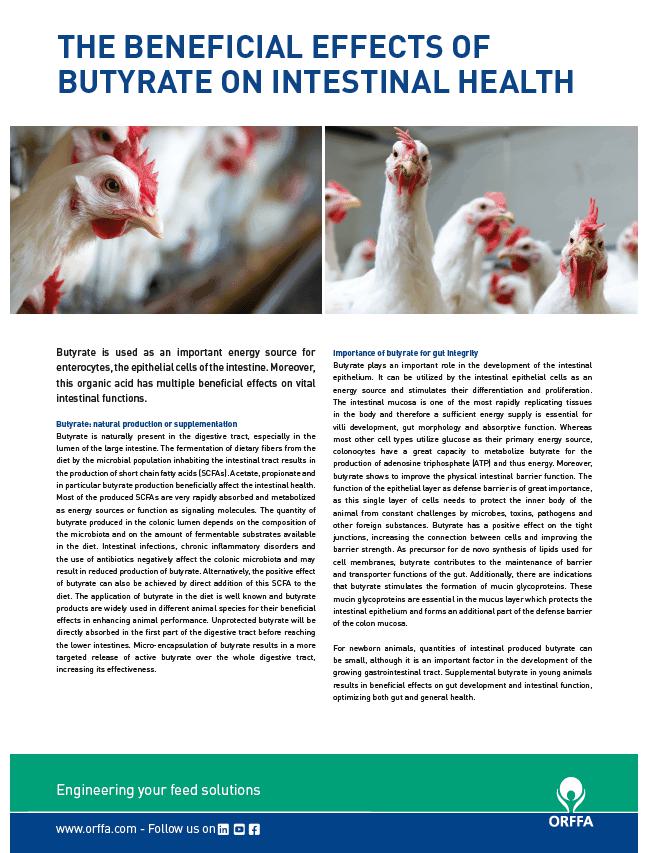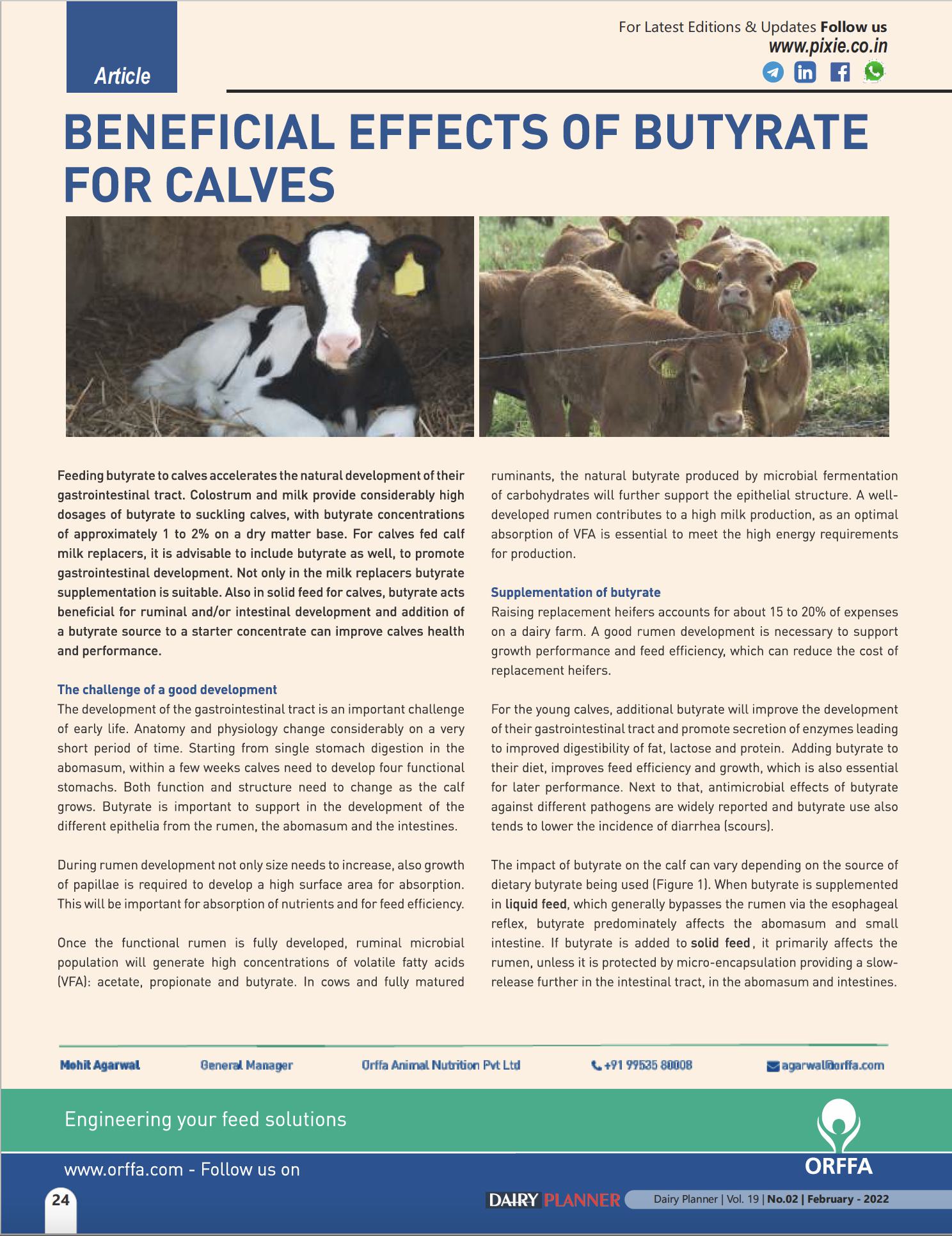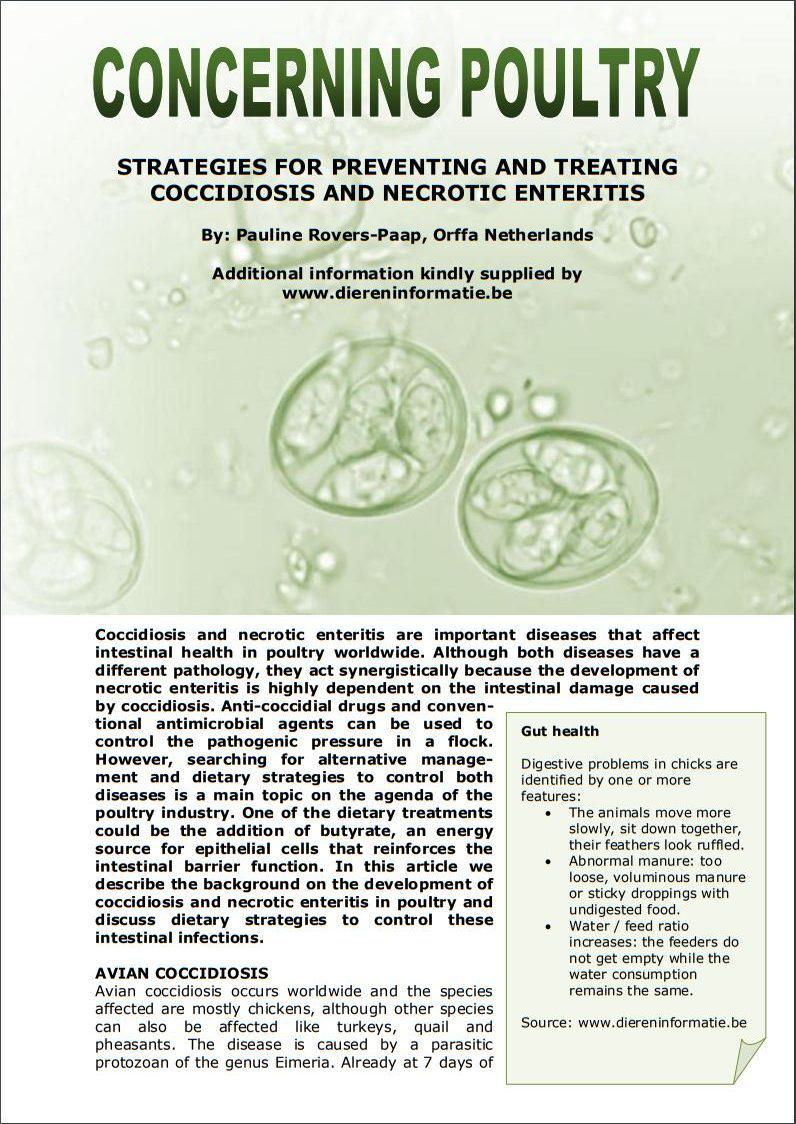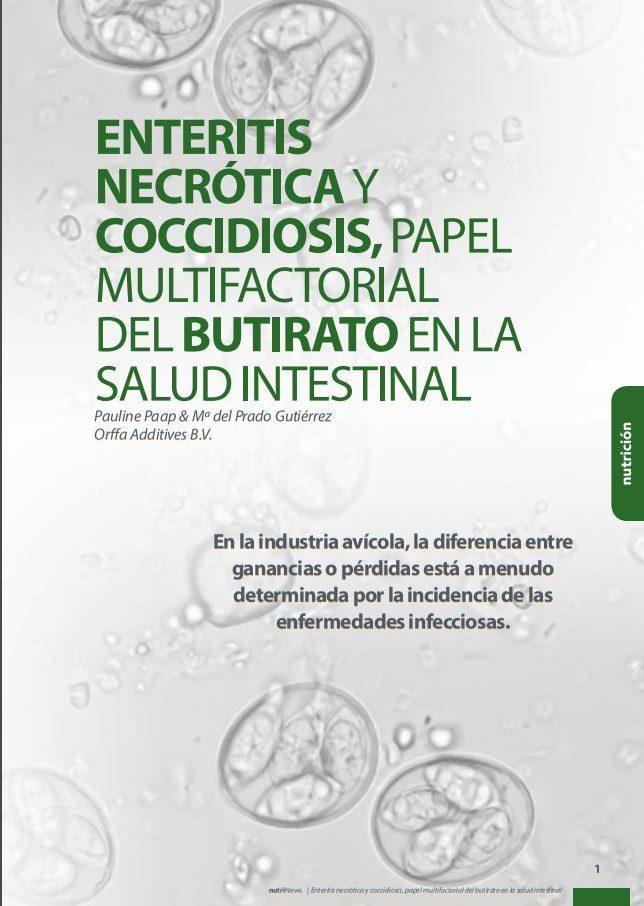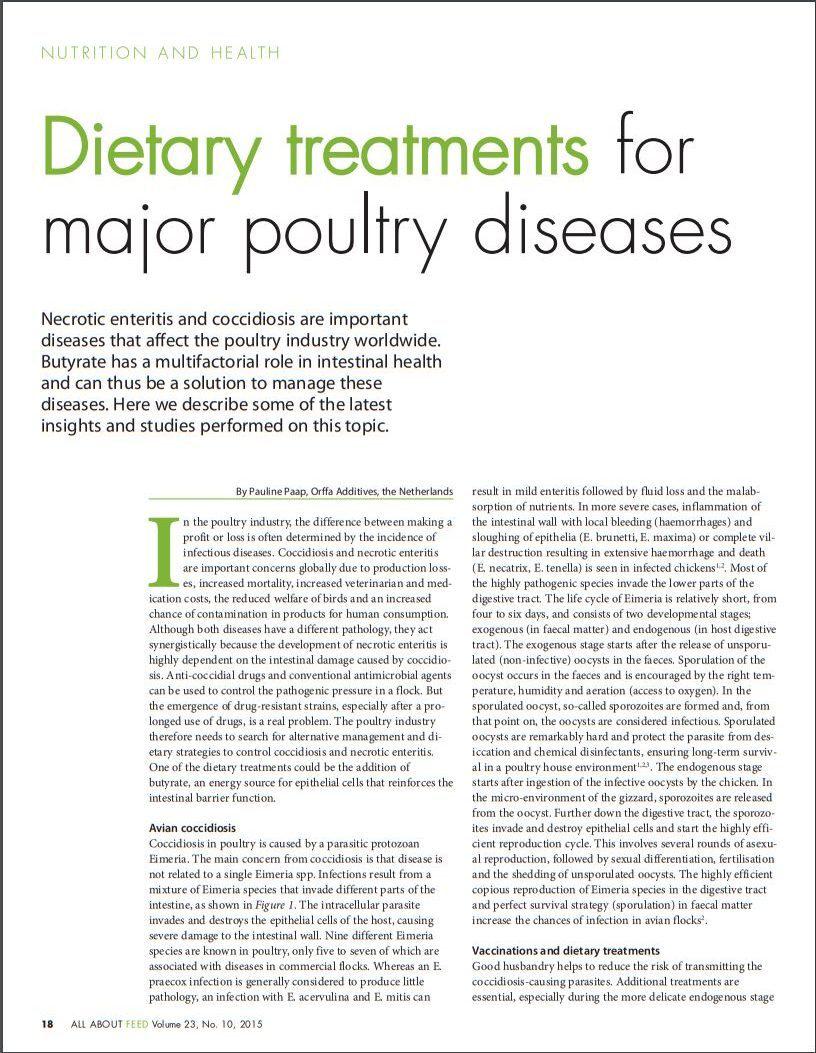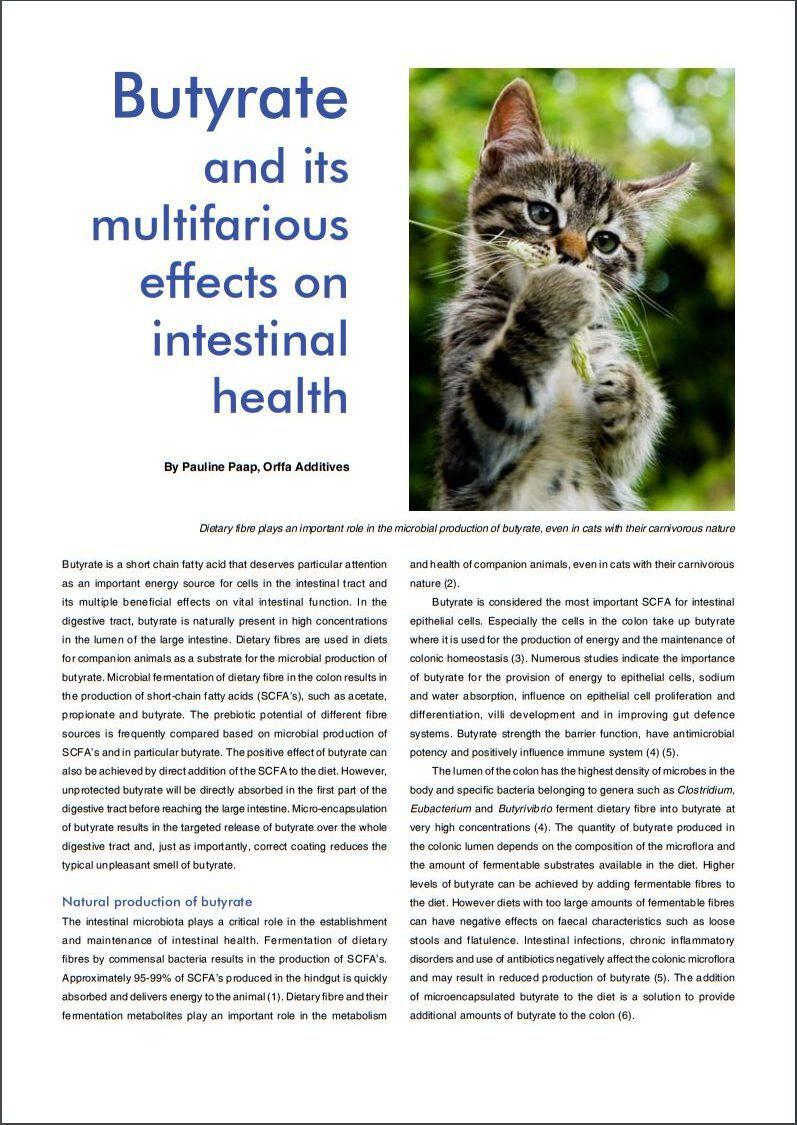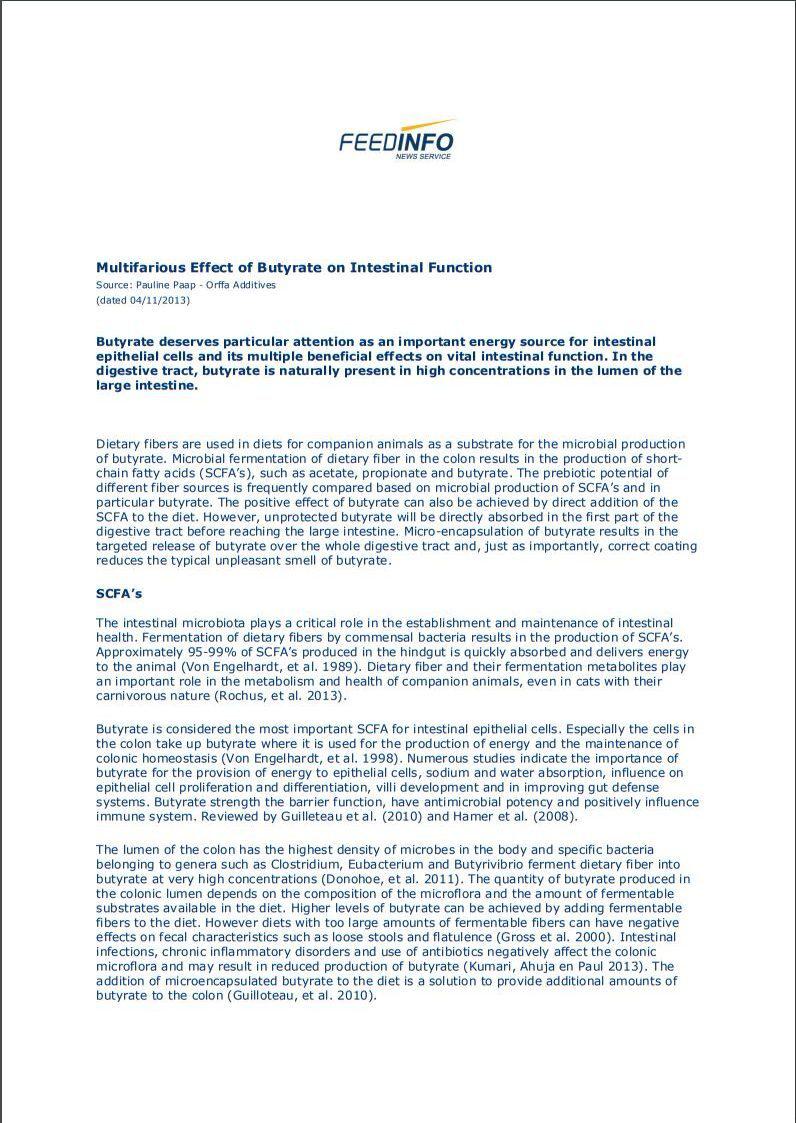Arno van der Aa and Ramakanta Nayak: Delivering established Innovation within animal nutrition & health market combined with a regional tailored approach
eFeedlink,
June 2025
Orffa was established over 50 years ago in North-West Europe, at that time already involved in bringing feed additives to market. Over the years, Orffa expanded in its geographical footprint and started to develop and produce specialty feed additives under its own scope and brand name (“Excentials”). Today, Orffa is active in 90+countries. With a clear regional focus, Orffa can service customers with clear customer focus and
0e1d35c8-dda2-46c9-8fa1-b738e8fe1649,75668571-875d-4f33-ae60-582bef77df3b,17239826-48f3-451a-9339-7f1389a1d014, e110f00c-e8de-473c-9311-14c7516c6d0a,6a8415ac-c669-4253-a1a7-ba3d5d7872f1,96b0fedb-74b2-4bf5-87ea-3759b48f4217,0488eb96-b937-4f4b-af7d-6736cd38203f,c38f462e-3e5d-4b86-88f4-16cd48c1a5c0,726155a2-e68c-47a8-a221-7a7ff83773e5 d5dfc6bf-ef9b-42f9-af03-17d62a7efa15,e378b528-b958-4a79-b665-eec6a6693a0b,f7d1c2d5-868d-4aff-bf19-1d979e6ce19f,ebda3477-8509-4dbf-918f-785d6f3e92e9,46dfa1b8-3547-4dc1-8395-d7aa6000c08c,3ff73809-7eea-46f5-9499-ebb856ce35ee,b1593db0-31fe-429f-8cd8-ac5a04ed6642,af393e79-b464-4d5d-8120-a76ce682e7fa,edb4ae6c-e790-4e64-9a55-f872c9e6281c,78140030-b3fc-42e6-8fc3-12f24cd6bd68,9cee69fe-546c-411f-b0ce-2842b45b0603,6893e924-8850-47af-aacd-0a9711b588b3,11174f0e-2503-4011-83f9-3d4c7ff91e3d,e9f930e8-798d-4162-8651-998a3b419386,9977cb92-e5fb-4009-a0d4-52ad667ee27c,6858c51e-bc53-4662-b2c9-1361d9a69159,cd131ada-1cc6-4f9b-8145-60f02e12d702,65641857-761a-48cb-801a-57fef1773bb4,a74be6cb-c272-4fe0-8f7f-0e2af6489ad8,345e02f1-33f5-44e8-8588-ebe7c35cfc32,4562b032-34f4-4bbd-a3ec-e16f7a95b174,9b135f00-2a93-4b04-a2bd-a4a32d974b99,a9a316bc-d0a9-402c-8915-580a0cca8bce,c23d9c43-ba43-4b25-9c25-22c902b7cbe0,de65b078-0e74-4c6e-9ec9-096759a42d06,33e5246e-f50a-40ff-8bce-7247e27f1855,4f84596e-9db1-4a38-b54c-cbac2272d0f1,9ad7b5ee-7e98-47e1-a721-486a0c25e18a,ad1e1695-80db-4193-ae15-20a531dd0997,2e6055b2-57bf-47ba-8156-bc9c8e829ede 677dbd38-0773-44d8-aa65-d2106819dd4e
d5dfc6bf-ef9b-42f9-af03-17d62a7efa15,e378b528-b958-4a79-b665-eec6a6693a0b,f7d1c2d5-868d-4aff-bf19-1d979e6ce19f,ebda3477-8509-4dbf-918f-785d6f3e92e9,46dfa1b8-3547-4dc1-8395-d7aa6000c08c,3ff73809-7eea-46f5-9499-ebb856ce35ee,b1593db0-31fe-429f-8cd8-ac5a04ed6642,af393e79-b464-4d5d-8120-a76ce682e7fa,edb4ae6c-e790-4e64-9a55-f872c9e6281c,78140030-b3fc-42e6-8fc3-12f24cd6bd68,9cee69fe-546c-411f-b0ce-2842b45b0603,6893e924-8850-47af-aacd-0a9711b588b3,11174f0e-2503-4011-83f9-3d4c7ff91e3d,e9f930e8-798d-4162-8651-998a3b419386,9977cb92-e5fb-4009-a0d4-52ad667ee27c,6858c51e-bc53-4662-b2c9-1361d9a69159,cd131ada-1cc6-4f9b-8145-60f02e12d702,65641857-761a-48cb-801a-57fef1773bb4,a74be6cb-c272-4fe0-8f7f-0e2af6489ad8,345e02f1-33f5-44e8-8588-ebe7c35cfc32,4562b032-34f4-4bbd-a3ec-e16f7a95b174,9b135f00-2a93-4b04-a2bd-a4a32d974b99,a9a316bc-d0a9-402c-8915-580a0cca8bce,c23d9c43-ba43-4b25-9c25-22c902b7cbe0,de65b078-0e74-4c6e-9ec9-096759a42d06,33e5246e-f50a-40ff-8bce-7247e27f1855,4f84596e-9db1-4a38-b54c-cbac2272d0f1,9ad7b5ee-7e98-47e1-a721-486a0c25e18a,ad1e1695-80db-4193-ae15-20a531dd0997,2e6055b2-57bf-47ba-8156-bc9c8e829ede
20250627
2025


